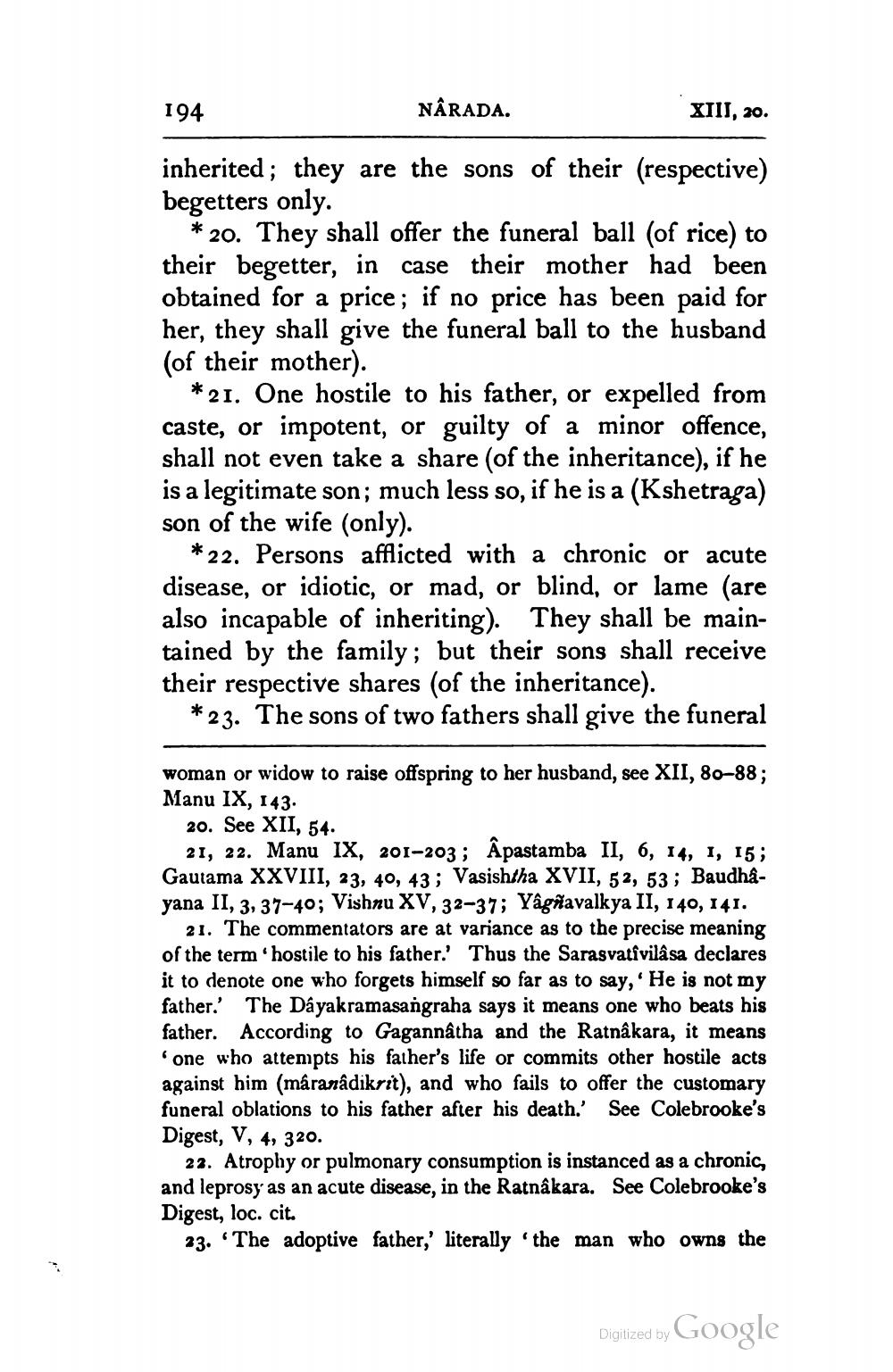________________
194
NÂRADA.
XIII, 30.
inherited; they are the sons of their (respective) begetters only.
* 20. They shall offer the funeral ball (of rice) to their begetter, in case their mother had been obtained for a price; if no price has been paid for her, they shall give the funeral ball to the husband (of their mother).
*21. One hostile to his father, or expelled from caste, or impotent, or guilty of a minor offence, shall not even take a share (of the inheritance), if he is a legitimate son; much less so, if he is a (Kshetraga) son of the wife (only).
*22. Persons afflicted with a chronic or acute disease, or idiotic, or mad, or blind, or lame (are also incapable of inheriting). They shall be maintained by the family; but their sons shall receive their respective shares (of the inheritance).
*23. The sons of two fathers shall give the funeral
woman or widow to raise offspring to her husband, see XII, 80-88; Manu IX, 143.
20. See XII, 54.
21, 22. Manu IX, 201–203 ; Âpastamba II, 6, 14, 1, 15; Gautama XXVIII, 23, 40, 43; Vasishtha XVII, 52, 53; Baudhayana II, 3, 37-40; Vishnu XV, 32-37; Yâgñavalkya II, 140, 141.
21. The commentators are at variance as to the precise meaning of the term 'hostile to his father.' Thus the Sarasvativilâsa declares it to denote one who forgets himself so far as to say, 'He is not my father.' The Dayakramasangraha says it means one who beats his father. According to Gagannatha and the Ratnakara, it means
one who attempts his father's life or commits other hostile acts against him (mâranâdikrit), and who fails to offer the customary funeral oblations to his father after his death. See Colebrooke's Digest, V, 4, 320.
22. Atrophy or pulmonary consumption is instanced as a chronic, and leprosy as an acute disease, in the Ratnakara. See Colebrooke's Digest, loc. cit.
33. “The adoptive father,' literally the man who owns the
Digitized by Google




